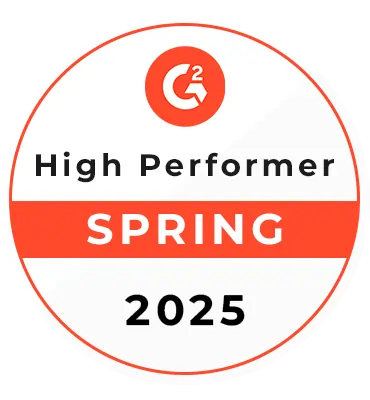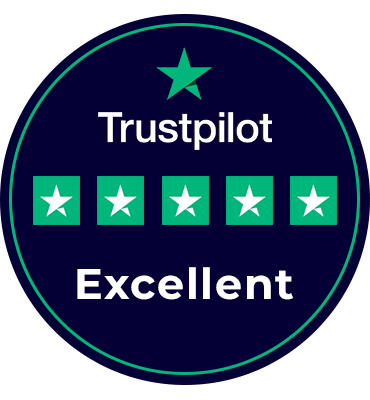Automated Marketing for Manufacturing Firms- Key Benefits
Manish kumawat
Last Updated on: 25 September 2025
Many times manufacturing businesses feel marketing is a stressful challenge because running a factory is no easy job. Between making things, checking quality, and keeping everyone happy, who has time to think about marketing?
If you're feeling the same, don't worry - we've plenty of solutions for you.

How beneficial and helpful if you have an efficient and 24/7 working assistant who never gets tired and loves doing all the boring marketing tasks. That's basically marketing automation. Manufacturing marketing automation is like having a robot that handles all the annoying tasks so you can focus on making great products.
Want to find new customers or keep your old ones happy? Marketing automation can help. It saves time, money, and effort.
Ready to learn more? Here we discuss all the relevant information about marketing automation for manufacturing business. Let's get started!
Understanding Manufacturing Marketing Automation
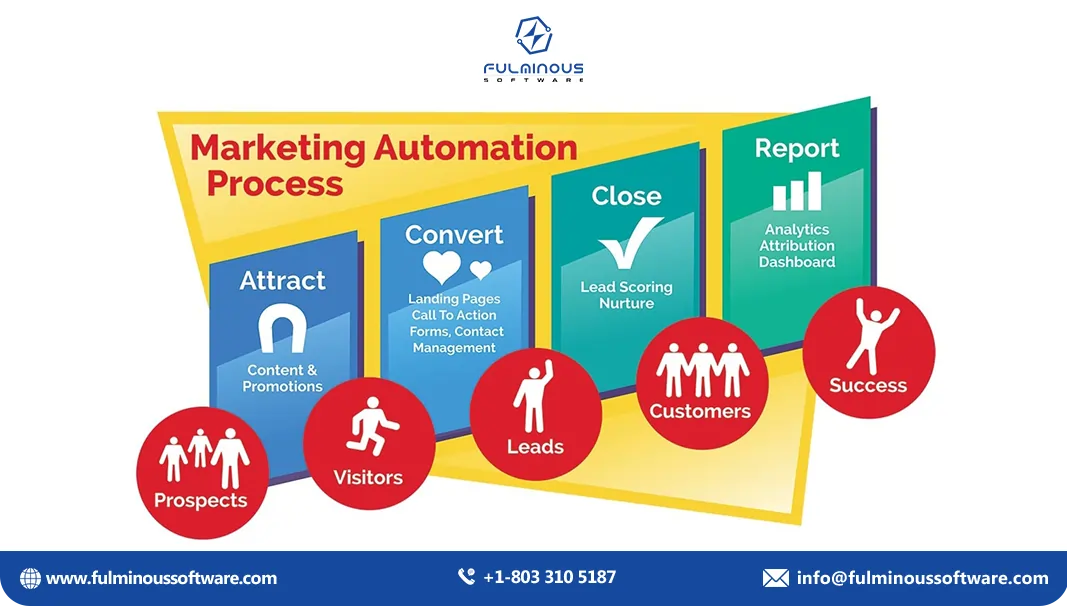
What is automated marketing?
Marketing automation is like having a super smart assistant for your manufacturing business. It's all about making the boring, repetitive marketing stuff automated. Software platforms for managing and automating marketing workflows and procedures are known as marketing automation platforms. It includes the following activities:
- Email marketing
- Lead nurturing
- Social media management
- Customer relationship management (CRM)
By automating these tasks, manufacturers can save time, improve efficiency, and enhance the overall customer experience.
Key Benefits of Automated Marketing for Manufacturers
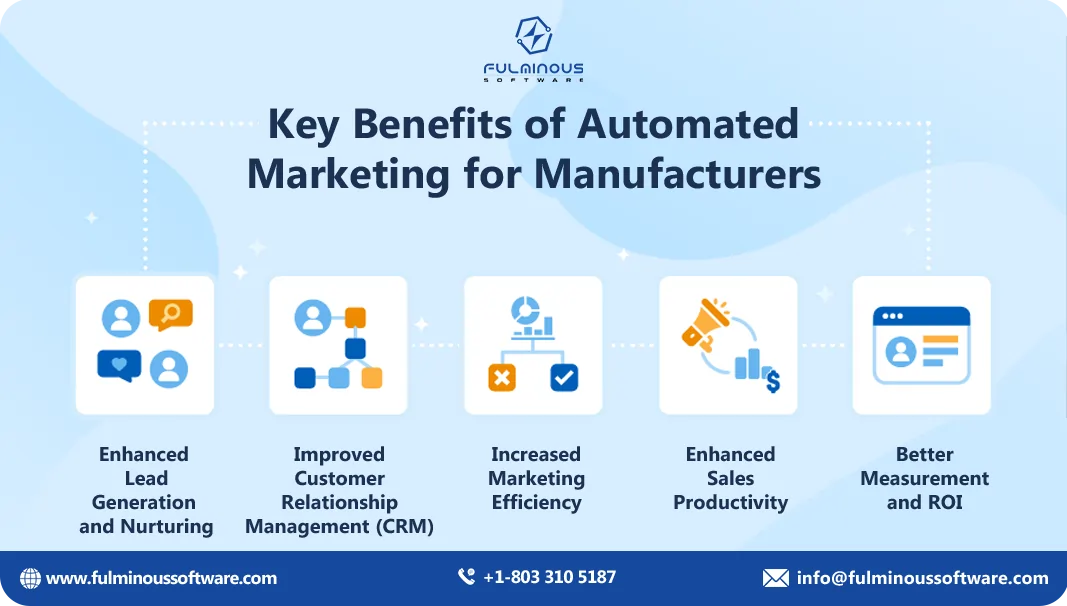
Does marketing automation work for manufacturing? This is an important concern for manufacturing business owners. But see the following key benefits of marketing automation:
1. Enhanced Lead Generation and Nurturing
- Lead Scoring: Automate the process of qualifying leads based on predefined criteria, enabling sales teams to prioritize their efforts.
- Personalized Email Campaigns: Deliver targeted content to specific segments of the audience, increasing engagement and conversion rates.
- Lead Nurturing Workflows: Create automated email sequences to guide leads through the sales funnel and build relationships.
2. Improved Customer Relationship Management (CRM)
- Centralized Customer Data: Store and manage customer information in a single platform for easy access and analysis.
- Automated Customer Segmentation: Divide customers into groups based on demographics, behavior, or preferences for targeted campaigns.
- Personalized Customer Experiences: Deliver tailored messages and offers based on customer interactions and preferences.
3. Increased Marketing Efficiency
- Automated Tasks: Free up marketing teams to focus on strategic initiatives by automating repetitive tasks like email sending, social media posting, and data entry.
- Improved Campaign Performance: Examine campaign outcomes and change based on data to maximize effectiveness.
- Faster Time-to-Market: Accelerate the launch of new products or services by automating marketing processes.
4. Enhanced Sales Productivity
- Qualified Lead Delivery: Provide sales teams with high-quality leads that are more likely to convert.
- Sales Enablement Tools: Equip sales teams with the necessary tools and information to close deals faster.
- Improved Sales Forecasting: Use data-driven insights to predict sales performance and allocate resources effectively.
5. Better Measurement and ROI
- Detailed Analytics: Monitor the effectiveness of marketing efforts by calculating important metrics like conversion, click-through, and open rates.
- Attribution Modeling: Determine which marketing channels and activities contribute most to sales and revenue.
- ROI Calculation: Measure the return on investment for marketing campaigns and allocate budget accordingly.
Also, see these facts:
- By 2030, the market for marketing automation is expected to grow to a value of $13.71 billion worldwide. According to 91% of marketers, marketing automation aids in their goal-achieving. (Source)
- Those who use marketing automation get an 80% increase in lead number. Since using marketing automation, over 3/4 have seen a boost in conversions. Using marketing automation software results in a 451% increase in qualified leads. (Source)
- The productivity gain from marketing automation technologies is about 20%.
- 63% of businesses are using marketing automation to outperform rivals.
Marketing Automation for Manufacturers: Essential Tasks You Can Automate
Manufacturing can benefit greatly from marketing automation, which can improve marketing efficacy and free up important time and resources. Let us examine the main domains in which automation can yield noteworthy effects.
Lead Generation and Management
- Lead Capture: Automate the process of capturing visitor information through forms and pop-ups.
- Lead Scoring: Assign scores to leads based on predefined criteria, helping sales prioritize their efforts.
- Lead Nurturing: To assist leads in navigating the buyer's journey, create automated email campaigns.
- Lead Distribution: Automatically route qualified leads to the appropriate sales representative.
Email Marketing
- Email Campaigns: Schedule and send targeted email campaigns based on customer segments and behavior.
- Autoresponders: Set up automated email responses for various triggers, such as form submissions or welcome emails.
- A/B Testing: Optimize email performance by automating testing of various subject lines, content, and design components.
- Email List Management: Clean and segment email lists for better targeting and deliverability.
Social Media Management
- Content Scheduling: You can schedule and prepare social media content postings ahead of time.
- Engagement Monitoring: Track mentions, comments, and messages, and respond automatically when appropriate.
- Lead Generation: Capture leads through social media channels and integrate them into your CRM.
- Campaign Tracking: Measure the performance of social media campaigns and adjust strategies accordingly.
Marketing Analytics and Reporting
- Data Collection: Gather data from various marketing channels and consolidate it into a single platform.
- Performance Tracking: Monitor key metrics such as website traffic, lead conversion rates, and ROI.
- Report Generation: For the purpose of informing stakeholders, generate automated reports.
- Predictive Analytics: Utilize data to forecast trends and optimize marketing strategies.
Customer Relationship Management (CRM)
- Data Synchronization: Keep customer information up-to-date across different systems.
- Sales Pipeline Management: Automate the tracking of deals and opportunities through the sales process.
- Customer Segmentation: Divide customers into groups based on demographics, behavior, or preferences.
- Customer Lifecycle Management: Create automated workflows for different customer stages (acquisition, retention, upselling).
Additional Automation Opportunities
- Product Launches: Automate email campaigns, social media promotions, and website updates for new product launches.
- Customer Onboarding: Automatically send out product details, onboarding materials, and welcome emails.
- Customer Support: Automate routine customer inquiries and provide self-service options.
- Event Management: Manage event registrations, invitations, and follow-ups automatically.
Key Steps for Marketing Automation Success in Manufacturing
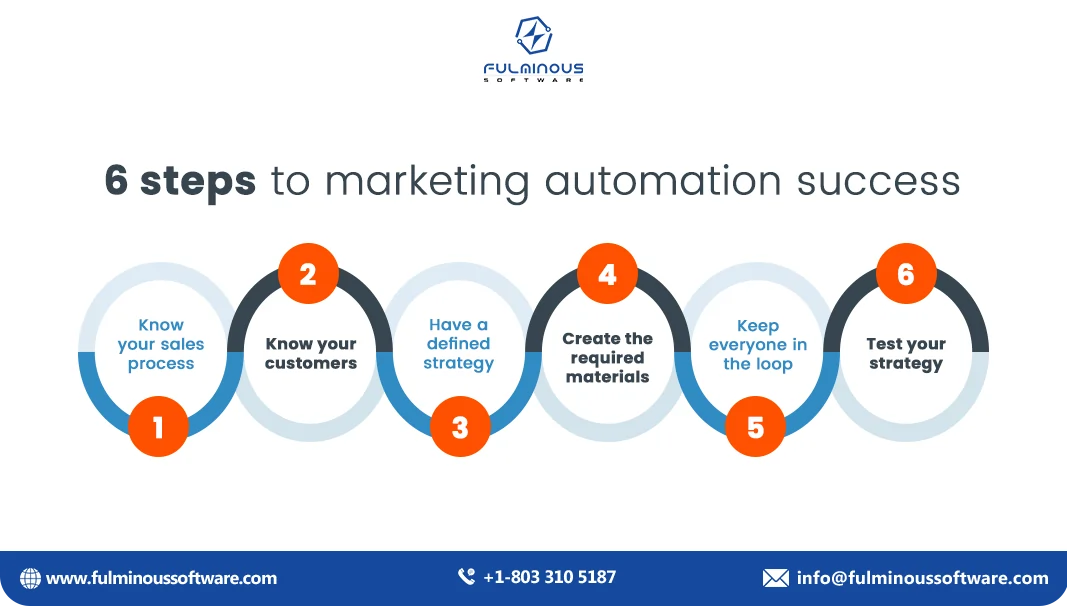
Getting the best out of marketing automation in manufacturing takes detailed planning. See the key things to think:
- Know what you want: Figure out what you hope to achieve with marketing - more customers, happier customers, or better sales. This will help you choose the right tools.
- Understand your customers: Learn who your customers are, what they need, and what bothers them. This helps you create messages that really connect with them.
- Connect your tools: Make sure your marketing software, customer database, and other tools work together smoothly.
- Clean up your data: Fix any mistakes or outdated information in your customer lists. This makes sure your marketing messages reach the right people.
- Prioritize leads: Decide which potential customers are most likely to buy. This helps your sales team focus on the best opportunities.
- Create helpful content: Make valuable content like articles, ebooks, or blogs that your customers will find useful.
- Make your website easy to use: Help people find what they need on your website and make it easy for them to contact you.
- Personalize your messages: Send messages that are tailored to each customer based on their interests and what they've done on your website.
- Keep testing: Try different things to see what works best. Evaluate the success of your marketing and adjust as necessary.
- Train your team: Make sure everyone knows how to use the marketing automation tools.
- Keep learning: Track how your marketing is performing and use that information to make smart decisions.
Follow these steps to make use of marketing automation to grow your manufacturing business.
Common Pitfalls to Avoid
- Ignoring Data Quality: Inaccurate targeting and inefficient work might result from poor data.
- Over-Automating: While automation is beneficial, it's essential to maintain a human touch in your marketing.
- Neglecting Lead Nurturing: Focus on building relationships with leads through personalized content and nurturing campaigns.
- Ignoring Mobile Optimization: Ensure your emails and website are optimized for mobile devices.
Follow these best practices to maximize the benefits of marketing automation and drive significant improvements in your manufacturing business.
Challenges and Solutions for Implementing Marketing Automation in Manufacturing
There are plenty of challenges in implementing marketing automation in manufacturing businesses. But there are also potential solutions for these challenges.
| Challenges | Solutions |
|---|---|
| Complex Integration with Existing Systems | Implement seamless integration with CRM, ERP, and other business systems to ensure smooth data flow. |
| High Initial Investment | Start with scalable solutions and gradually expand as you see ROI, reducing the financial burden. |
| Resistance to Change | Make the transition easier and highlight the benefits of automation by providing in-depth training and ongoing support. |
| Data Quality and Management | Maintaining correct and valuable client information requires the implementation of data validation and routine cleaning procedures. |
| Lack of In-House Expertise | Partner with experienced marketing automation providers like Fulminous Software for expert guidance and support. |
| Customization and Personalization | Use advanced segmentation and targeting tools to create personalized marketing campaigns that resonate with your audience. |
| Maintaining Engagement Consistency | Automate customer engagement activities, such as newsletters and follow-up messages, to ensure regular communication. |
| Measuring ROI and Effectiveness | Track important indicators and evaluate your marketing efforts' effectiveness with the use of powerful analytics and reporting tools. |
| Content Creation and Management | Create a content strategy with high-quality content and frequent updates, then use automated solutions to handle distribution. |
| Keeping Up with Technological Advancements | Stay informed about new marketing automation trends and technologies, and regularly update your systems to stay competitive. |
Case Studies of Implementing Marketing Automation in Manufacturing
Case Study 1: Precision Parts Manufacturer
Precision Parts Co. is a leading manufacturer of high-quality precision components used in the aerospace and automotive industries.
Challenges:
- Inefficient Lead Generation: Time-consuming and error-prone, the manual lead qualification and capture process was in place.
- Low Conversion Rates: Inconsistent follow-ups and lack of personalized communication led to low conversion rates.
- Poor Data Management: Disparate systems resulted in fragmented customer data, making it difficult to track and nurture leads effectively.
Fulminous Software’s Solutions:
- Automated Lead Capture and Scoring: Incorporated landing sites and automated forms that worked with their CRM to score and collect leads according to pre-established standards.
- Personalized Email Campaigns: Developed segmented email campaigns tailored to different buyer personas, delivering relevant content at each stage of the sales funnel.
- Unified Data Management: Integrated their marketing automation technology with CRM to guarantee a unified view of client interactions and smooth data flow.
Results:
- Increased Lead Volume: Automated lead capture processes led to a 40% increase in lead volume.
- Improved Conversion Rates: Personalized email campaigns and timely follow-ups boosted conversion rates by 30%.
- Enhanced Data Accuracy: Unified data management reduced data discrepancies by 25%, enabling more effective lead nurturing and follow-up.
Case Study 2: Industrial Equipment Manufacturer
Industrial Equip Inc. specializes in manufacturing heavy-duty industrial machinery for the construction and mining sectors.
Challenges:
- Inconsistent Customer Engagement: Reliance on sporadic email newsletters led to inconsistent customer interactions.
- Limited Personalization: Across a range of consumer categories, generic marketing messaging was ineffective.
- Lack of Insightful Analytics: Inadequate tracking of marketing efforts hindered their ability to measure campaign effectiveness.
Fulminous Software’s Solutions:
- Automated Customer Journeys: Designed automated customer journeys with tailored content and touchpoints to maintain consistent engagement.
- Dynamic Content Personalization: Implemented dynamic content features in email and web campaigns to deliver personalized experiences based on customer behavior and preferences.
- Advanced Analytics and Reporting: Strong analytics tools were made available to monitor customer behavior, campaign efficacy, and critical performance KPIs.
Results:
- Enhanced Engagement Rates: Automated customer journeys increased email open rates by 35% and click-through rates by 25%.
- Higher Customer Retention: Personalized content and consistent engagement efforts improved customer retention rates by 20%.
- Actionable Insights: Advanced analytics provided actionable insights, leading to a 15% improvement in campaign optimization and ROI.
How Fulminous Software Can Assist You in Implementing Marketing Automation
Fulminous Software can help you in all the below-described ways:
- Complete Marketing Toolbox: Fulminous software offers all the tools you need for automated marketing, from finding new customers to keeping old ones happy.
- Attract More Customers: We help your manufacturing website get found and generate interest. Our tools capture and manage potential customers efficiently.
- Build Strong Customer Relationships: We assist to keep customers happy with automated emails and messages. This helps you maintain a loyal customer base.
- Make Smart Marketing Decisions: Fulminous software analyzes your marketing results, helping you focus on what works best.
- Connect Your Business Tools: Everything works together seamlessly. No more juggling different software programs.
- Scalable for Your Growth: Whether you're small or large, our software adapts to your business needs.
- Expert Support and Training: We provide training, guidance, and support to help you succeed with our software.
- Continuously Improving: Our software team is always getting better at delivering the best results.
- Proven Success: Many manufacturing businesses like yours have achieved great results with our tools.
- Personalized Customer Journeys: Send targeted emails based on customer interests to guide them toward a purchase.
- Data-Driven Marketing: Understand your marketing performance with detailed reports and make informed decisions.
- Seamless Business Integration: Our software team works smoothly with your other business tools.
- Growth-Oriented Solutions: Our flexible pricing and features support manufacturing businesses of all sizes.
Conclusion
Marketing automation can be a huge help for manufacturing companies. The benefits of this advanced method are countless. It makes marketing easier by handling various tasks. By using automation, manufacturers can find more potential customers, build better relationships with existing ones, and save time and money. Companies like Precision Parts Co. and Industrial Equip Inc. have already seen great results by using targeted marketing strategies. To make the most of automation, working with experts like Fulminous Software can be really helpful. They offer tools and advice to fit any business's needs. In short, marketing automation is the best choice for manufacturers to sell more, save money, and stay ahead of other competitors.
If you feel that it is time to automate the marketing functions of your manufacturing business or you need more information, you can contact us at +1 803 310 5187 or send an email to info@fulminoussoftware.com
FAQs
- Q1: What is marketing automation for manufacturing businesses?
- A: Marketing automation for manufacturing businesses uses software to automate repetitive marketing tasks, improving efficiency and allowing manufacturers to focus on production.
- Q2: How does marketing automation benefit lead generation?
- A: Marketing automation benefits include automating lead scoring, personalized email campaigns, lead nurturing workflows, and increasing engagement and conversion rates.
- • Automated lead capture
- • Personalized emails
- • Lead nurturing sequences
- Q3: What CRM benefits come with marketing automation?
- A: Centralized customer data, automated segmentation, and personalized experiences enhance customer relationship management.
- • Centralized data
- • Automated segmentation
- • Personalized experiences
- Q4: How does marketing automation improve marketing efficiency?
- A: By automating repetitive tasks, marketing automation improves campaign performance and accelerates time-to-market for new products or services.
- • Task automation
- • Campaign performance
- • Faster launches
- Q5: What are some essential tasks that can be automated?
- A: Lead generation, email marketing, social media management, and CRM tasks can all be automated to save time and resources.
- • Lead management
- • Email marketing
- • Social media
- Q6: What should be considered when implementing marketing automation?
- A: Define clear goals, build buyer personas, integrate systems, cleanse data, and develop a robust lead-scoring model.
- • Clear goals
- • Buyer personas
- • System integration
- Q7: What challenges might manufacturers face with marketing automation?
- A: Common challenges include complex integration, high initial investment, resistance to change, and data quality issues.
- • Integration complexity
- • Initial investment
- • Data quality
- Q8: How can Fulminous Software help with marketing automation?
- A: Fulminous Software provides tools for customer attraction, relationship building, smart decision-making, and seamless business integration.
- • Marketing tools
- • Customer relationship
- • Business integration
- Q9: How do automation tools enhance the customer's journey in manufacturing marketing?
- A: Automation tools streamline the customer's journey by delivering personalized content and automated emails at each stage, improving engagement and guiding prospects through the sales funnel more effectively.
- Q10: How does marketing automation support sales productivity?
- A: It provides qualified leads, sales enablement tools, and improved sales forecasting to help sales teams close deals faster.
- • Qualified leads
- • Sales tools
- • Sales forecasting
- Q11: Can marketing automation software help marketing teams with real-time decision-making?
- A: Yes, marketing automation software provides real-time analytics and insights, enabling marketing teams to make informed decisions, optimize campaigns, and quickly adapt strategies to market changes.
HIRE A TOP SOFTWARE DEVELOPMENT COMPANY

 Verified
Expert in Software & Web App Engineering
Verified
Expert in Software & Web App Engineering
I am Manish Kumawat, co-founder of Fulminous Software, a top leading customized software design and development company with a global presence in the USA, Australia, UK, and Europe. Over the last 10+ years, I am designing and developing web applications, e-commerce online stores, and software solutions custom tailored according to business industries needs. Being an experienced entrepreneur and research professional my main vision is to enlighten business owners, and worldwide audiences to provide in-depth IT sector knowledge with latest IT trends to grow businesses online.
Partner with Top-Notch Web Application Development Company!
Discuss your Custom Application Requirements on info@fulminoussoftware.com or call us on +1-903 488 7170.
15 Days Risk-Free TrialRecommended Articles

